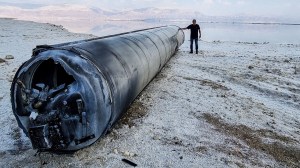- India
- International
‘Higher risk of premature delivery if exposed to passive smoking, biomass fuel during pregnancy’
Preliminary analysis shows women exposed to either smoke from biomass fuel, used for lighting stoves, or passive smoking during pregnancy were at 47 per cent higher risk of premature delivery.
 Of the total data collected so far, 13 per cent babies were delivered premature, 2.3 per cent stillborn and 26.7per cent of low weight. ( Representational Image)
Of the total data collected so far, 13 per cent babies were delivered premature, 2.3 per cent stillborn and 26.7per cent of low weight. ( Representational Image)
A large-scale study on 8,000 pregnant women has found that passive smoking and exposure to biomass fuel could cause premature deliveries. Preliminary analysis of women from Gurugram civil hospital showed preterm births, attributed to passive smoking, stood at 6.6 per cent, double than that of biomass fuel exposure (3.8 per cent).
Pre-term birth, or delivery before the normal gestation period of 37 weeks, is commonly caused due to rupture of membrane causing amniotic fluid to leak, bacterial infection, poor nutrition and multiple pregnancies. In India, of 27 million babies born every year (2010 data), 3.6 million are premature and at least three lakh of them die every year. The country accounts for 24 per cent of global neonatal deaths.
Under the study ‘Garbhini’, undertaken by New Delhi-based Translational Health Sciences and Technology Institute since May 2015, experts observed women who were less than 20 weeks pregnant. The initial idea was to use algorithms to predict how likely a woman was to deliver a premature baby. Their vaginal swabs, saliva, urine samples along with regular ultrasound tests were studied. While it is known that active smoking during pregnancy could affect foetal growth, doctors looked at passive smoking. Of the total data collected so far, 13 per cent babies were delivered premature, 2.3 per cent stillborn and 26.7per cent of low weight.
Preliminary analysis shows women exposed to either smoke from biomass fuel, used for lighting stoves, or passive smoking during pregnancy were at 47 per cent higher risk of premature delivery. “This meant that nearly one-tenth of all preterm births occurring in our population could be attributed to these exposures,” said principal investigator Dr Shinjini Bhatnagar, paediatric gastroenterologist at Translational Health Sciences and Technology Institute. “We still don’t know 90 per cent of risk factors responsible for preterm deliveries,” she added.
The Translational Health Sciences and Technology Institute, an autonomous institute under Department of Biotechnology, is now partnering with Indian Institute of Technology, Madras, to analyse the relationship between PM 2.5 particles, a common air pollutant, with adverse birth outcome. “This knowledge will identify the threshold of PM 2.5 exposure. Profiling of sources of air pollutants will help formulate evidence-based health advisory and policy interventions,” Bhatnagar said.

Dr Ramachandra Thiru, a co-investigator in the study, said, “No study has focused on passive smoking (in India). This study finds that while these women, mostly from rural areas, did not smoke, they were exposed to passive smoking. We think the placenta blood flow may get affected by smoke, but we need to study further to confirm this.”
Dr Ashok Anand, head of gynaecology department in JJ Group of Hospitals in Mumbai, said the hospital records 15 per cent premature deliveries. “Smoke can cause foetal growth restriction. It cuts oxygen supply to the brain,” he said. Multiple pregnancies, childhood marriages and poor nutrition remain common reasons for pre-term birth in government hospitals, he added.
Dr Smita Mahale, director of National Institute of Research in Reproductive Health, that researches infertility under the ICMR, said they are undertaking a basic study of pre-eclampsia in a pregnant woman to understand how it affects pre-term birth.
Apr 20: Latest News
- 01
- 02
- 03
- 04
- 05






































